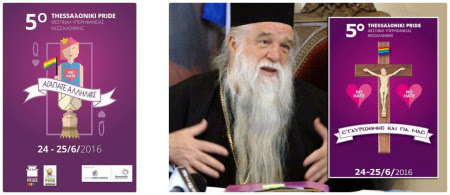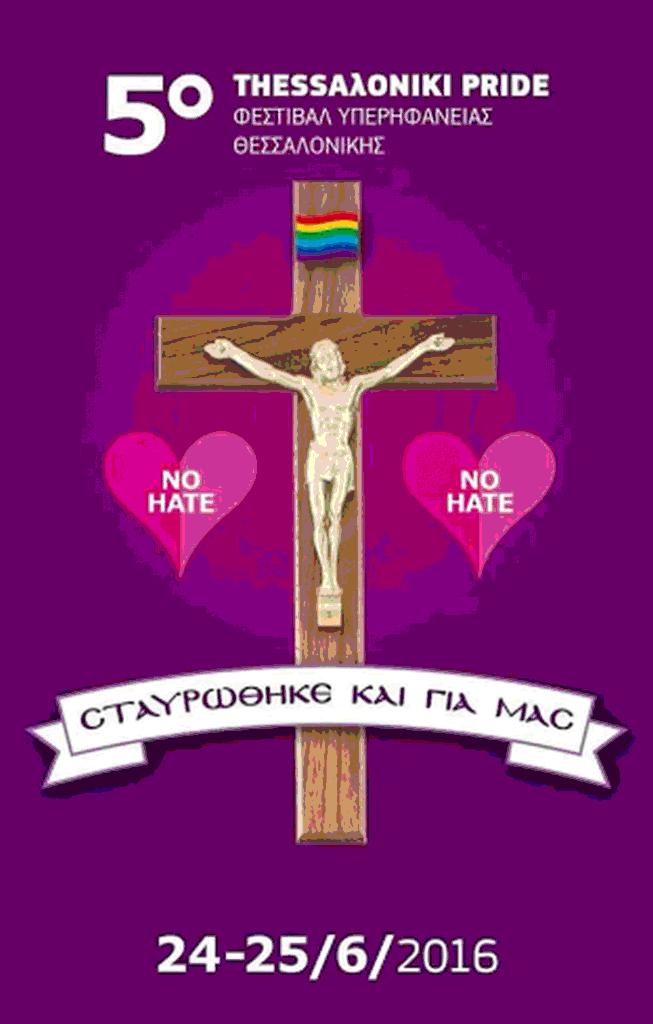Six people face prosecution for “blasphemy” in Greece, after a Greek Orthodox bishop complained about an image they didn’t actually make, which showed him next to an unofficial poster for a Pride event.

Left: the Pride poster, which proclaims “Love each other”. Right: an unofficial image in which a different poster is depicted next to Bishop Amvrosios
While the official poster for last year’s Pride march in Thessaloniki proclaims “Love each other”, a variant unofficial version featuring a depiction of the Christian messiah says “He was crucified for us too”. It appeared alongside a photograph of Metropolitan Bishop Amvrosios (of Kalavryta and Aegialia).
 On 9 June 2016, the Bishop announced on his personal blog that he had filed a complaint under the criminal code for “malicious blasphemy” and “offending religion” (Articles 198 para. 1, and 199, respectively).
On 9 June 2016, the Bishop announced on his personal blog that he had filed a complaint under the criminal code for “malicious blasphemy” and “offending religion” (Articles 198 para. 1, and 199, respectively).
Two lawyers, and three identical complaints by other citizens were made around the same time last year, resulting in multiple case files against six people.
The organizers of the Pride event, the second largest and most significant in Greece, have now been summoned to provide explanations for five of the six cases.
“We can hope that in this case, the accused will give their so-called ‘explanations’ and that the cases will not proceed to formal prosecutions and trials. But it is important to note how the “blasphemy” law is being used to harass and chill freedom of expression. In this case, nothing particularly offensive has even been said, and the real cause for concern of the complainants seems to be the mere proximity of religious symbolism to the assertion of LGBT rights!”
Previously, officials in the coalition government have repeatedly pledged to abolish the “blasphemy” law articles. But despite urging by humanist groups the law has not been revoked.
Greek’s most famous ongoing “blasphemy” case was resolved last month when Philippos Louizos, creator of the Elder Pastisios Facebook page, had his sentence quashed due to an administrative procedure clearing out crimes of “misdemeanor”.
But the Greek “blasphemy” law is actively used, and perhaps more than widely understood. In January 2017, police announced the arrest of two civilians charged with inter alia malicious blasphemy in Epirus. In February 2017, a footballer was excluded for four games because he “cursed the divine”. In March 2017, police announced the arrest of a citizen charged with inter alia malicious blasphemy in Central Greece. In April 2017, a citizen was arrested for a malicious blasphemy in Volos.